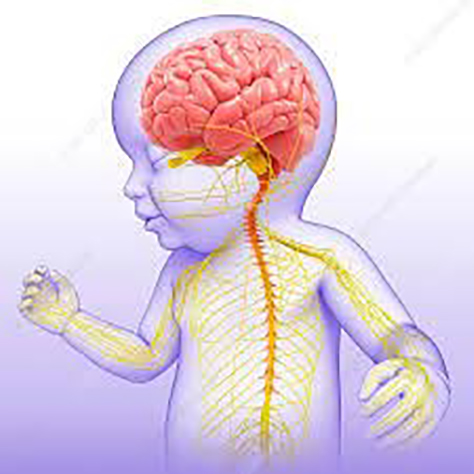The lowdown on hydrocephalus
Here's what you need to understand about hydrocephalus

You may already be aware that healthcare professionals will measure the size of your baby's head on some of your check ups, but you may not be aware why they do it.
One thing they are looking for is signs of a condition called hydrocephalus.
We take a look at what hydrocephalus is and what it means for your baby if they are diagnosed.
What is hydrocephalus?
Hydrocephalus comes from Greek, meaning “water” and “brain”. The “water” really refers to cerebrospinal fluid (CSF) which is the saltwater solution that bathes the brain and spine. CSF helps protect and nourish the brain, and to clear away its waste. We are always producing new CSF in fluid-filled spaces within the brain, called ventricles.
We are also always removing old CSF, it’s a delicate balance to maintain steady fluid levels. If the balance of CSF is disrupted – too much is produced, or not enough is drained away, then the fluid builds up in the ventricles. The build-up of CSF in the ventricles puts pressure on the surrounding brain and causes the symptoms of hydrocephalus.
What are the symptoms of hydrocephalus?
The symptoms of hydrocephalus depend on whether the skull bones have fused together yet or not. In babies and young children, the skull bones are separate so if CSF builds up in the brain the head can increase in size and the soft spot on the head may bulge. Other symptoms include poor feeding, drowsiness, vomiting, seizures, unusually high-pitched crying, known as a “neuro cry.” A very late sign is downward casting of the eyes (so the white part of the eye shows above the coloured part) known as “sunsetting”. In older children and adults where the skull can’t expand to accommodate the increasing fluid volume, pressure builds up inside the head. This can cause nausea and vomiting, especially in the mornings, drowsiness, head or neck pain, balance issues, confusion, or vision problems.
What are the long-term effects of hydrocephalus?
The long-term effects of hydrocephalus are varied. Hydrocephalus which begins early in pregnancy is often combined with changes to the way the brain develops and there can be some difficulties with concentration, memory, coordination, and language. These effects can in turn affect behaviour. Physical effects can include visual problems, or early puberty.
Hydrocephalus can be a challenging condition to live with, but many adults with the condition are able to lead full, happy, and independent lives.
If my baby has hydrocephalus, what treatment is available?
If your baby has hydrocephalus this may be picked up at your 20 week scan, or it may develop and be identified after birth, during infancy, or later in life.
You should have a diagnostic appointment with a specialist who may be able to inform you how the hydrocephalus may affect your baby's life. They will advise on a treatment plan which may be started right away, or a “watch-and-wait” approach may be used. There are two main treatment approaches: surgery to have a device called a shunt fitted that will drain away the excess fluid to another part of the body, or a procedure called an endoscopic third ventriculostomy (ETV) where a drainage hole is made in the ventricles to help release the fluid.
What causes hydrocephalus and how can I prevent it?
There are different causes of hydrocephalus: some are congenital (that you’re born with) and some are acquired after birth. Congenital hydrocephalus can occur with spina bifida and the chance of your baby developing spina bifida can be lowered by taking folic acid before becoming pregnant.
The risk of acquired hydrocephalus can be reduced by preventing head injuries, and vaccinating your child to protect them from infections that can cause meningitis.
Diagnosing hydrocephalus early can help improve outcomes so knowing the signs to look out for, keeping all your postnatal appointments and check-ups, and letting your GP, or your health visitor know quickly if you think there may be a problem, are all helpful.
For more information, advice, and support on hydrocephalus visit the Shine charity website by clicking the link below.